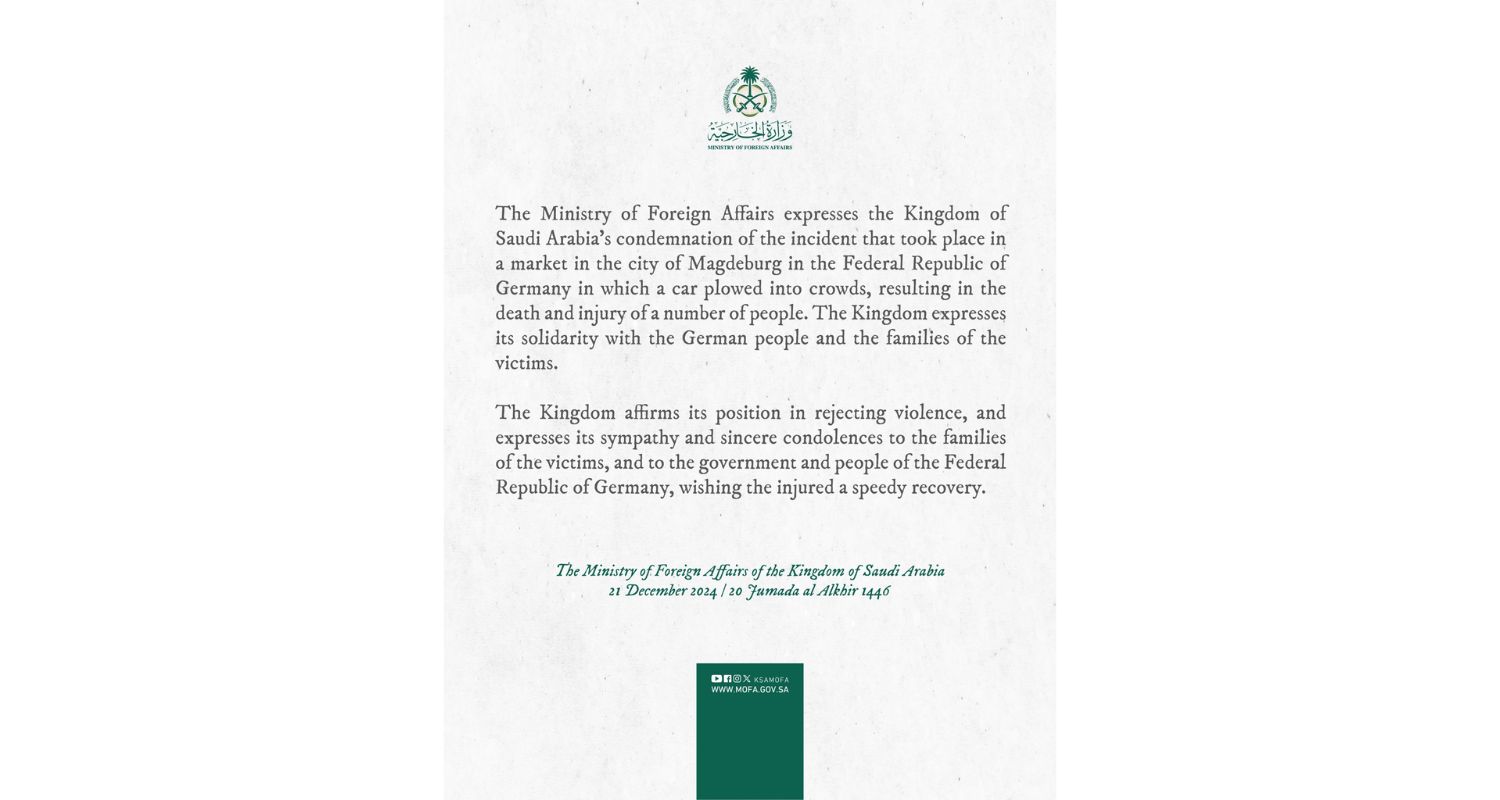A car-ramming attack at a German Christmas market in Magdeburg has tragically claimed the lives of at least five people, with over 200 others injured.
The attack, which took place on the evening of Friday, 20th December, has shocked the city and raised concerns about security, especially in light of ongoing debates about migration and safety in Germany.
The attacker, a 50-year-old Saudi man, was arrested by the authorities after the incident. Police have confirmed that the man has been living in Germany for almost 20 years and holds permanent residency.
The attack occurred at a Christmas market in the city of Magdeburg, located in Saxony-Anhalt state, which was filled with visitors enjoying the festive atmosphere.

Chancellor Olaf Scholz visited the scene and expressed his horror at the brutality of the act. He stated, “What a terrible act it is to injure and kill so many people there with such brutality.”
He also confirmed that more than 200 individuals had been injured, with around 40 of them in serious condition, leaving many in critical care. As news of the attack spread, there was an outpouring of grief from the public, with many coming together to honour the victims.
In response to the incident, German authorities quickly identified the suspect, who was later named as Taleb Al-Abdulmohsen, a Saudi Arabian doctor.
Reports indicate that Saudi Arabia had previously raised concerns about the individual due to his extremist views, which he had openly expressed on social media platforms such as X (formerly known as Twitter).
According to reports, the attacker had made several threats online, warning of his intention to bring "justice at any cost" and stating that the German authorities were obstructing peaceful means of achieving justice.
Despite these warnings, the attack was not prevented, leading to serious questions about the effectiveness of monitoring online threats.
Premier of Saxony-Anhalt, Reiner Haseloff, described the incident as a “catastrophe” for both the city of Magdeburg and Germany as a whole. He reassured the public, stating that the police had arrested the lone suspect and there was no longer any immediate threat to the city.
The suspect had been living in Germany for nearly two decades, and his residency status had allowed him to blend into the community, despite his extremist views.
German authorities have since begun an investigation, searching his home and gathering evidence to determine whether the attack was premeditated or a result of other factors.
The tragic event has revived memories of a similar attack that occurred in 2016 when Tunisian refugee Anis Amri rammed a truck into a Christmas market in Berlin, killing 12 people.
The similarities between the two attacks have once again brought the issue of security and the potential risks posed by individuals with extremist views into the spotlight.
This recent incident has also highlighted the growing concern about the role of social media platforms in facilitating the spread of extremist ideologies and threats.
As investigations continue, the motive behind the attack remains unclear. Authorities have not ruled out any potential links to extremist groups, but they are also exploring the possibility of personal grievances or other reasons for the attack.
The police are working to uncover any further details about the suspect's background and his potential associations with extremist ideologies.
The incident in Magdeburg has sparked debates across Germany regarding the effectiveness of current security measures and the role of migration in the country’s safety.
With the far-right Alternative for Germany (AfD) party gaining support, particularly in the context of rising concerns about immigration, this attack has fuelled discussions about how best to address security threats while balancing the protection of citizens' rights.
The tragic loss of life at the Christmas market has left many citizens questioning the safety of public spaces in Germany. The festive period, usually a time of celebration and joy, has been overshadowed by the horror of this attack.
As the investigation continues, the people of Germany are left to mourn the victims, while also grappling with the larger questions surrounding security and the prevention of such attacks in the future.


